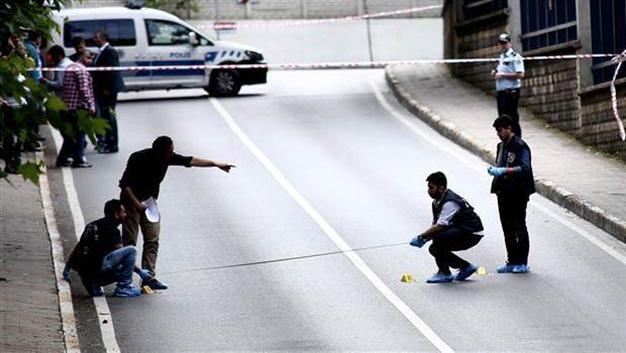Retired colonel shot in Istanbul had covered identity
ISTANBUL

DHA Photo
A retired colonel, who was shot in Istanbul’s central Beşiktaş district with his wife on June 7, was reportedly using a fake ID and was the commander who led a military operation in which 10 student members of an illegal revolutionary group were killed in 1972.
Retired colonel Çetin Oğuz, 67, and his wife Asuman Oğuz, 66, were shot by unknown attackers who escaped on a motorbike near the Istanbul regional Gendarmerie Command in Beşiktaş. The two were immediately taken to hospital, with Çetin Oğuz reportedly being in a critical condition. He was shot in his stomach soon after he and his wife cast their votes in Turkey’s general election on June 7.
The police have opened an investigation to find the two unidentified suspects, while the motorbike used in the attack was found near Beşiktaş’s Abbasağa Park.
Soon after the attacked colonel was identified as Çetin Oğuz, it emerged that his real ID was actually Fehmi Altınbilek, daily Sözcü reported on June 7.
Altınbilek was the commander who headed the military operation in Istanbul’s Kızıldere neighborhood (today known as Ataköy) in which revolutionary student leader Mahir Çayan and nine others were killed on March 27, 1972.
Çayan was the leader of the People’s Liberation Party-Front of Turkey (THKP-C), an illegal group born of the leftist student movements of the 1960s and 70s. Çayan was an iconic figure for Turkish leftist movements, escaping prison after being sentenced in 1971. Ertuğrul Kürkçü, who is still an active politician in Turkey, was the only survivor of the clash in which Çayan and nine other friends were killed.
Altınbilek also headed another operation in the Çemişgezek district of Tunceli province on Jan. 24, 1973, in which İbrahim Kaypakkaya was wounded. Kaypakkaya is another symbolic name of the 1968 student movement and the former leader of the Turkish Workers and Peasants’ Liberation Army (TİKKO), and survived the 1973 operation wounded.
Altınbilek is also known for his close relations with late colonel Cem Ersever and retired colonel Veli Küçük.
Ersever, a notorious Special Forces major and intelligence officer, was found dead near Ankara on Nov. 4, 1993. He was found shot dead a few days after he stated that he wanted to make some confessions regarding the outlawed Kurdistan Workers’ Party (PKK), the army, and relations with Jalal Talabani, then leader of the Iraqi Kurdistan Patriotic Union.
Küçük was one of the key suspects in the notorious Ergenekon coup plot case and he was released from prison in 2014 along with all other suspects in the case.
Meanwhile, Altınbilek’s name was first heard in media outlets on April 13, 1970 when one of the two guns used in the killing of Doctor Necdet Güçlü turned out to be registered under Altınbilek’s name.
